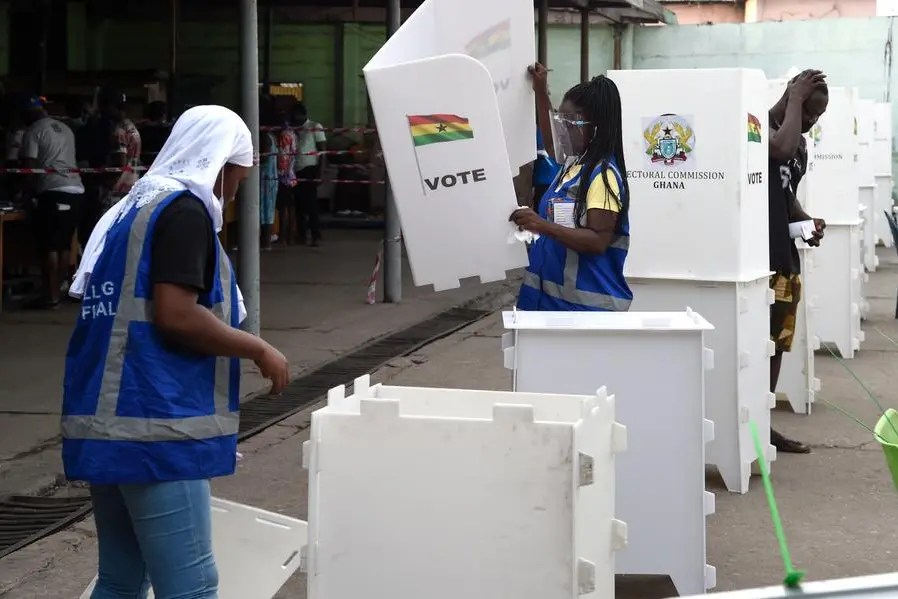PHOTO
Ghana's largest opposition party, the National Democratic Congress (NDC), voted in primaries on Saturday to choose its presidential candidate for next year's election, with former leader John Mahama favoured to win after his chief rival withdrew from the race.
Political parties are preparing to choose their presidential candidates as Ghana holds talks with the IMF over a $3 billion bailout to help overcome an economic crisis and as it faces a growing jihadist threat from a conflict in neighbouring Burkina Faso.
More than 355,000 NDC party delegates are expected to converge at 401 voting centres across the country for the ballot. Polls open at 0700 GMT and close at 1600 GMT, with preliminary results expected later Saturday.
Despite defeats in 2016 and 2020 elections by incumbent President Nana Akufo-Addo, former Ghanaian leader Mahama is eyeing a return and had faced off with former central bank governor Kwabena Duffuor and former Kumasi mayor Kojo Bonsu.
But Duffuor withdrew from the race late on Friday, saying the party was not ready to conduct a "free and fair election".
Mahama had already been tipped by most political analysts to win the primary to become the flagbearer of the NDC based on his experience and influence in the opposition party.
"He has been tried and tested and comes with a lot of experience," Kwame Asah-Asante, a political science lecturer at the University of Ghana, told AFP.
"Mahama is the most marketable candidate in the party now. I don't see the delegates voting against him. The party stands a better chance of returning to power with Mahama than any other candidate."
- 'Poisoned calabash' -
Duffuor, also a former finance minister, has a large base in the Ashanti Region -- the stronghold of the governing New Patriotic Party (NPP).
He had reversed his decision earlier on Friday to place a court injunction on the primary race after expressing reservations about discrepancies in the electoral roll. The 80-year-old's campaign message has centred on hope for Ghanaians.
But later the same day he pulled out of the race.
"I wish to reiterate my commitment to the party and its grassroots. However, my concerns that the party is not ready to conduct free and fair election is evident for all to see," he said in a statement.
"Taking part in such would be akin to knowingly drinking from a poisoned calabash."
The ruling New Patriotic Party will hold its own primaries in November 2023 while the presidential election is scheduled for December 7 next year.
Whoever emerges as the winner of the opposition contest will likely look to capitalise on the economic crisis facing the West African country in the presidential campaign.
Ghana, a major exporter of cocoa and gold, has defaulted on its external debts including eurobonds, and is in talks with the International Monetary Fund (IMF) for a $3 billion line of credit to strengthen the economy.
Once seen as an investors' favourite, Ghana has recently struggled with its debt load. The government spends more than half of its revenues on debt servicing.
Ghana, along with coastal West African neighbours Benin, Togo and Ivory Coast, is also bracing for growing spillover from jihadist conflict over northern borders in Burkina Faso, where Islamist militants control large swathes of territory.




















